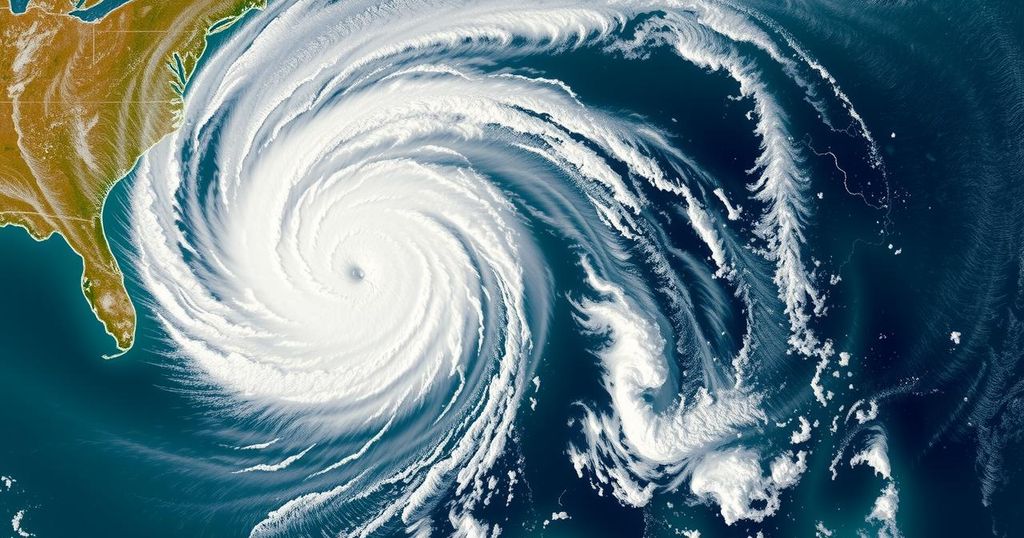Cyclone Chido, a devastating Category 4 storm, made landfall in Mozambique on December 15, impacting approximately 1.7 million people after causing catastrophic damage in Mayotte, where entire neighborhoods were flattened. International organizations and local authorities are responding to the humanitarian crisis resulting from the cyclone’s effects.
Cyclone Chido, classified as a Category 4 storm, struck Mozambique’s Cabo Delgado province, making landfall in its capital, Pemba, on December 15. The cyclone had previously caused significant destruction in Mayotte, a French overseas department. Reports indicate that Chido was centered over northern Mozambique, with its effects already felt in southern Malawi, prompting proactive measures from emergency services in the region. The International Organization for Migration estimates that approximately 1.7 million individuals in Mozambique have been impacted by the cyclone, emphasizing the dire situation as local authorities and agencies coordinate aid and assess urgent needs. UNICEF has expressed concern over the cyclone’s immediate and long-term consequences on an already vulnerable population and has mobilized to provide assistance as conditions demand.
Cyclone Chido emerged as a formidable storm in the Indian Ocean, causing devastation in both Mayotte and Mozambique. Before making landfall in Mozambique, the cyclone wreaked havoc on the small island of Mayotte, where it was reported that entire neighborhoods were destroyed and fatalities could number in the hundreds, if not thousands. The historical intensity of the cyclone, with winds exceeding 220 km/h, marked it as an unprecedented event for Mayotte in nearly a century, leading to concerns about the humanitarian implications in the affected areas.
The impact of Cyclone Chido has been severe, with significant loss of life and property reported, particularly in Mayotte and Mozambique. Emergency responders, including the Malawi Red Cross and UNICEF, are actively engaged in assessing the needs of the affected populations and coordinating relief efforts. As the situation develops, the focus remains on providing immediate support and addressing long-term recovery challenges for the communities impacted by this catastrophic event.
Original Source: www.downtoearth.org.in







